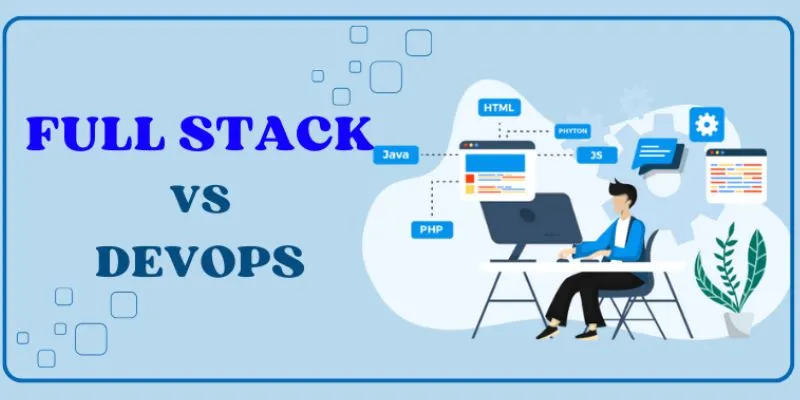
In the tech industry, DevOps and Full Stack development are two essential but distinct roles. Enrolling in a Full Stack Developer course in Chennai can provide you with a comprehensive understanding of both front-end and back-end development, enhancing your skill set. Both fields demand technical expertise, but their focus and approach to software development and deployment differ significantly. Understanding these differences Between DevOps and Full Stack Matters for choosing a career path that aligns with your interests and skills.
1. Focus and Role
A Full Stack developer works on both the front-end (client-side) and back-end (server-side) of a web application. They are responsible for developing user interfaces, managing databases, and handling server configurations. In contrast, DevOps engineers focus on automating, managing, and monitoring software deployment pipelines. Their goal is to streamline the development process, from coding to deployment, ensuring that software releases happen smoothly and frequently.
2. Skills
Full Stack developers are proficient in languages like JavaScript, HTML/CSS, and frameworks like React or Angular. They also need knowledge of server-side technologies such as Node.js or Django. DevOps engineers, however, need expertise in tools like Docker, Kubernetes, and continuous integration/continuous deployment (CI/CD) pipelines. They also often work with cloud platforms like AWS or Azure.
3. Collaboration
While Full Stack developers primarily collaborate with designers and front-end teams to create cohesive user experiences, DevOps engineers work closely with both developers and IT operations teams. Their role is to bridge the gap between software development and system operations to ensure smooth deployment.
4. Tools and Technology Stack
DevOps uses tools like Terraform for infrastructure automation, while Full Stack developers typically work with tools such as Git, npm, or Webpack. Understanding the different toolsets can help aspiring tech professionals decide which role suits their interests better.
5. End Goal
The ultimate goal for a Full Stack developer is to deliver fully functional web applications that provide a seamless user experience. Participating in a Full Stack Developer course in Bangalore can equip you with the skills necessary to achieve this goal effectively. For DevOps engineers, the focus is on ensuring that software is continuously deployed, maintained, and updated in the most efficient manner.
6. Job Market and Opportunities
Both fields are in high demand, but DevOps roles tend to be more specialized and are sought after in industries where automation is critical. Full Stack development offers a broader range of opportunities in web development agencies, startups, and larger corporations.
7. Learning Pathways
The learning pathways for both roles vary significantly. Enrolling in DevOps training in Chennai can provide you with a solid foundation in the essential skills and tools used in this field. Full Stack developers typically follow a software engineering path, focusing on languages and frameworks for web development. In contrast, DevOps professionals often come from system administration or software engineering backgrounds, emphasizing cloud services, automation, and monitoring.
8. Work Environment
Full Stack developers often work in product-oriented environments where they directly contribute to feature development. DevOps engineers, however, usually operate in operations-focused environments, working on infrastructure management, deployment, and monitoring rather than direct application development.
9. Continuous Learning
Both roles require continuous learning, but the focus differs. Participating in DevOps training in Bangalore can help you stay updated on the latest practices and tools in the field. Full Stack developers stay updated on the latest web technologies and frameworks, while DevOps engineers focus on new automation tools, cloud technologies, and practices that enhance the software development lifecycle.
